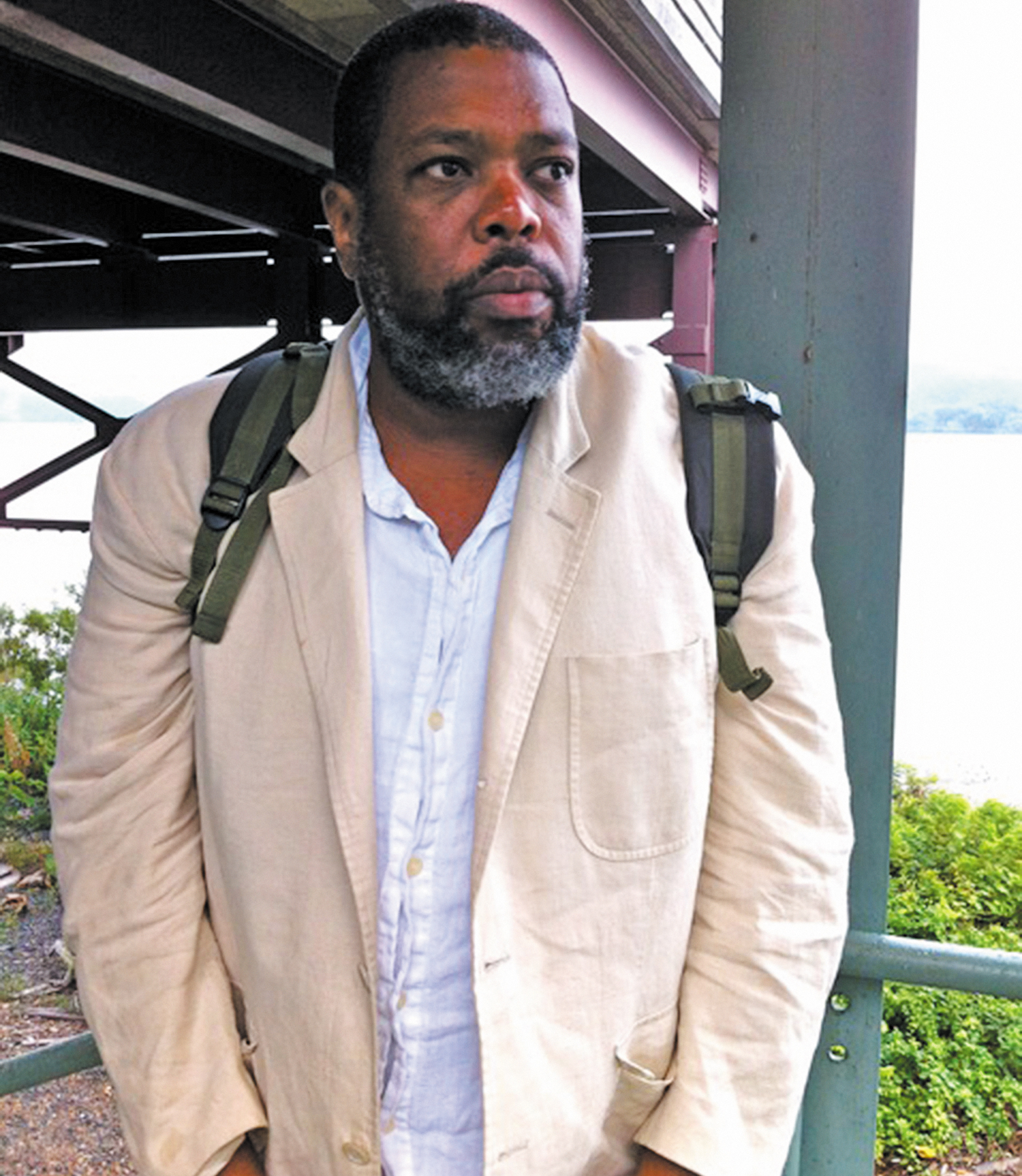Eric and Goliath
We were barraged with letters and web comments about two pieces that ran in our November 4 issue: one was Eric Alterman’s column, titled “The ‘I Hate Israel’ Handbook,” in which he attacks Max Blumenthal’s book Goliath. The other was Blumenthal’s “Israel Cranks Up the Right-Wing PR Machine,” an excerpt from Goliath. A debate between the two authors migrated to our website (see TheNation.com/blog/176861/eric-alterman-replies-max-blumenthals-letter and TheNation.com/article/176802/response-eric-alterman).
—The editors
Eric Alterman’s review of Goliath says more about Alterman’s views than about the book. And if this is the best that liberal Zionism has to offer, then Zionism—not to mention the Palestinians—is in deeper trouble than I had imagined.
I am troubled by The Nation’s need to present “two sides of the story.” Having Alterman do his hatchet job in the same issue as Blumenthal’s article is a case in point.
There is no equivalency between whatever Palestinians have done or are doing and what Israel and Zionism have done to the Palestinians. And no section of the media, particularly the progressive one, should try to make it so. Let Alterman’s piece be published, but either not in The Nation—or with The Nation’s disclaimer.
Abdeen Jabara
Past president, American Arab Anti-Discrimination Committee
I grew up reading The Nation, and I was shocked that this bastion of enlightened thought would publish that horrendous piece by Eric Alterman defending Zionism. Isn’t it time the left rejected this kind of overt racism and petty, chauvinistic nationalism? How could The Nation betray its legacy by pandering to those who defend an apartheid regime? As Phan Nguyen has said, can we look forward to Nation pieces like “Two Views on Homosexuality,” “Two Views on Neoliberal Globalization” or “Two Views on Obama’s Birthplace”? Shame!
Keith S. Schuerholz
oakland, calif.
Since Eric Alterman singled me out in his online response to Max Blumenthal, I would like to respond with a few words about the legacy of the Israeli thinker and social critic Yeshayahu Leibowitz.
I have no desire to respond to Alterman’s defense of his claim that “Jews all over the world ‘revered’ Leibowitz for the brilliance of his Talmud exegesis,” except to reiterate the accepted scholarly view that Leibowitz’s writings on Jewish philosophy do not constitute Talmudic exegesis. Obviously, as a philosopher writing about Judaism, Leibowitz cites the Talmud, as do Martin Buber and Michael Walzer, for example. But this hardly makes him, or them, brilliant Talmudic exegetes.
As for being revered by “Jews all over the world”: I wish Leibowitz was better known outside Israel. I have been teaching his thought for more than thirty years, since I attended his public lectures in Jerusalem. Enter any US synagogue (including Orthodox) and ask Jews if they have heard of Yeshayahu Leibowitz, and you will generally encounter blank stares. The philosopher’s sister Nechamah is better-known, especially among the Orthodox.
Apparently Alterman knows of Leibowitz as a Jewish philosopher who merited an entry in the Stanford Encyclopedia of Philosophy (as one of the SEP’s editors I can recommend it). That apparently explains his surprise at Blumenthal’s claim in Goliath that Leibowitz was revered by the Israeli left.
But the Israeli left knew and revered Leibowitz as an outspoken Orthodox Jewish moral critic who foresaw in 1967 how the occupation would cause Israeli society to rot; who accordingly demanded an immediate, total Israeli withdrawal to the 1949 armistice lines even without a peace agreement; who referred to the nationalist fervor around the conquest of Jerusalem, the West Bank and Gaza as “fascism”; who coined the memorable term Diskotel for the religio-nationalist infatuation with the Western Wall (Kotel in Hebrew); who called the religious Zionist settlers “worshipers of stones and trees” (i.e., idolaters); and who claimed that the Israeli public enjoyed the murder of Arabs in Beirut in 1982. Much of the above can be found in Leibowitz’s book Judaism, Human Values, and the Jewish State (for a good English website see giorab.wix.com/leibowitz).
On the centenary of Leibowitz’s birth, in 2003, and at the height of the Second Intifada, the magazine section of Haaretz published a cover article whose inside headline began, “What Remains of the Worship of Yeshayahu Leibowitz?” That “worship” was not of Leibowitz the philosopher but of the sharp-tongued social critic who railed against the establishment. The fact that the left did not understand that critique in the context of Leibowitz’s religious philosophy is irrelevant to that reverence.
Is Leibowitz revered by the left now? Two months ago, Haaretz’s columnist and critic Gideon Levy delivered a birthday tribute to that grand Israeli leftist Uri Avnery, saying, “Avnery was one of the first to utter the words that everyone mumbles now—‘two states for two peoples.’ Together with Yeshayahu Leibowitz and the radical socialist organization Matzpen, he was the pillar of fire that went before the camp.”
From Leibowitz and Matzpen to Avnery and Levy, there is an Israeli tradition of harsh criticism of mainstream Zionist policies toward the Palestinians. Leibowitz’s criticism of the actions of the Israeli army and government began in the early 1950s and was based on general and Jewish morality. This earned him the reverence of the left.
Perhaps I do Alterman an injustice by inferring that he did not know this aspect of Leibowitz’s persona. But in wishing to discredit Blumenthal, Alterman gave his readers no reason to believe that he did.
Charles H. Manekin
college park, md.
Eric Alterman cites Max Blumenthal’s reference to the Labor Zionist leader Berl Katznelson’s remark that “the Zionist enterprise is an enterprise of conquest,” and points out that Katznelson also said that he did not wish to see the realization of Zionism with the Arabs in the position of the Jews of Poland.
However, a gulf often existed between the public statements of Labor Zionist leaders and their private views. A standard official position held that there was no conflict between the interests of Palestinian Arabs and Zionists, that the real conflict was between the Palestinian Arab masses and their landowners and effendis, and that this conflict could be solved through an alliance of Palestinian Arab and Jewish workers. That position was largely for external consumption. Arthur Ruppin, who oversaw Zionist colonization during the 1920s and ’30s, noted in 1936 that “on every site where we purchase land and where we settle people, the present cultivators will inevitably be dispossessed.”
His successor Yoseph Weitz reported in the official Histadrut daily that in 1940 he and other leaders, including Katznelson, had reached the following conclusion: “The only solution is Palestine, or at least western Palestine without Arabs…and there is no other way but to transfer all the Arabs from here to the neighboring countries. To transfer all of them; not one village, not one tribe, should be left behind.”
Labor had a penchant for obfuscation, mystification and out-and-out deception. Katznelson also said, “We have never been a colonialist movement; we are a movement of colonization.”
Ralph M. Coury
new haven, conn.
Brandishing the flag of objectivity, even-handedness and liberal savoir-faire, Eric Alterman accuses Max Blumenthal of “selectivity” and of being “naïve.” However, it is Alterman who, in his shallow, reductive review, displays these traits. Rather than deal with Blumenthal’s thesis—that Israeli society is damaged emotionally and corrupted morally by the occupation and its treatment of Palestinian citizens—Alterman wrests the argument back onto the familiar terrain of equivalency between the Jewish state and the Palestinians. Alterman focuses on hatred rather than history, sentiment rather than system. That is why, besides invoking that old song of Israel as a democracy in a sea of existential threat (as if that nuclear power had never invaded Lebanon or Gaza), Alterman ends with a comment on the novelist David Grossman’s loss and anger. This is the trump card—the noble Peace Now activist who supported the devastating bombing campaign of Lebanon in 2006—behind which is a pack of shabby tricks designed to dismiss Blumenthal’s unblinking look at Israeli society.
Naomi Wallace
otterburn, north yorkshire, uk
I’d like to thank Eric Alterman for his review of Goliath, since immediately after reading it, I went out and bought a copy. It was identical to my experience when listening to an interview of Benny Morris calling books by Avi Shlaim “garbage”: I went out and acquired several. So thank you, Eric and other Israeli apologists, for identifying another potential great read. Blumenthal’s book can keep company with those of many other authors I have on this topic, including Rashid Khalidi, Noam Chomsky, Ilan Pappé, Jimmy Carter, Walid Khalidi, James Ennes Jr., Gershom Gorenberg, Victor Ostrovsky and Norman Finkelstein. I look forward to reading more of Alterman’s unbiased reviews. But for diversity, perhaps The Nation should reach out to AIPAC to find a reviewer who is less partisan.
Robin Adams
amesbury, mass.
Alterman Replies
I was sorry to see the close-minded call for The Nation to censor me by Abdeen Jabara. He might be interested in knowing that I appeared as an invited speaker at an Anti-Discrimination Committee convention in Washington and at a council of local businessmen in South Dakota to speak about US press coverage of the Palestinian conflict. In both cases, I was the guest of ADC founder Senator James Abourezk. We did not agree on everything, to be sure, but there was no attempt to censor my views. (And by the way, there would not be a “disclaimer” attached to my column; I wrote it at the express request of my editors.)
Keith S. Schuerholz’s and Phan Nguyen’s comparison of “Two Views of Israel” to “two views on Obama’s birthplace” tells you all you need to know about the mindset of defenders of Blumenthal’s book. Despite what they and he may wish to believe, Israel is an actual country in the Middle East. It takes a certain kind of crazy to equate it with birtherism. Unfortunately, it’s the kind of crazy wishful thinking one sees altogether too often in Blumenthal’s book and in the arguments of its defenders.
With regard to the letter from Charles H. Manekin, better known as the pro-BDS blogger “Jerry Haber,” his argument is as tendentious as it is wrongheaded. Manekin/Haber has toned down his argument quite a bit since he originally claimed on his blog, “Alterman (or his research assistant) may be interested to learn that Yeshayahu Leibowitz didn’t write any Talmudic exegesis and was NOT revered by Jews all over the world—in fact, virtually nobody outside of Israel knew who he was.” Having read my responses to his myriad blog posts on the topic, he now apparently accepts the fact that both of his earlier assertions were false, and hence he has not repeated them here. Nevertheless his pretenses to “accepted scholarly views” bear no relation to any such thing.
Even in its present form, Manekin’s complaint remains ridiculous. Leibowitz spent decades as the editor in chief of Encyclopedia Hebraica and his writings, including his myriad Talmudic exegeses, were published in three languages during his lifetime. Manekin/Haber claims, “Enter any US synagogue (including Orthodox) and ask Jews if they have heard of Yeshayahu Leibowitz, and you will generally encounter blank stares.” He presents no evidence for this, and of course he has none. He continues: “Apparently Alterman knows of Leibowitz as a Jewish philosopher who merited an entry in the Stanford Encyclopedia of Philosophy.”
Here again, Mankekin’s method is to simply make stuff up and then assert it as if that makes it true. As it happens, I long ago read Leibowitz’s Faith of Maimonides and his Judaism, Human Values, and the Jewish State. Recently, I’ve appreciated his challenging Torah commentaries, Accepting the Yoke of Heaven. Manekin, on his blog (where his letter also appears), imagined that I think about Israel for “maybe five minutes a month” (though he has since deleted this nonsensical accusation) and added “Alterman clearly doesn’t read Haaretz or YNETdaily…he gets his reporting on Israel from the mainstream media.” Here yet again, he is simply making this up and pretending it’s true. As for the rest of his contentions, let’s just say the record does not fill me with much confidence about anything this fellow has to say.
Ralph M. Coury does not, as far as I am aware, dispute anything I wrote in my column.
Naomi Wallace writes of my “invoking that old song of Israel as a democracy in a sea of existential threat (as if the nuclear power had never invaded Lebanon or Gaza).” Sorry, but this invocation took place exclusively in her imagination. I wrote nothing of the kind.
I congratulate Robin Adams on her library.
Overall, I need to say I’m deeply disappointed in the reaction to my column. Blumenthal’s defenders, unable to defend the veracity of his dreadful book—a book, I might add, recently endorsed on the website of neo-Nazi David Duke—have filled Nation letter boxes, Twitter and the blogosphere with personal invective, ad hominem attacks and purposeful distortion of my work in an attempt to discredit a column that has proven to be 100 percent accurate. As someone who has spent more than thirty years arguing on behalf of a two-state solution that would allow the Palestinians to live in peace and dignity alongside Israel—and severely criticizing those in Israel and the American Jewish community who work to undermine such a solution—I have often heard it remarked that the Palestinian people have been profoundly ill served by their leaders. Unfortunately, much the same can be said about their cheerleaders as well.
Eric Alterman
new york city Read More
Our Readers and Eric Alterman














